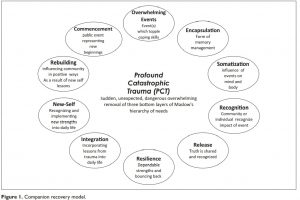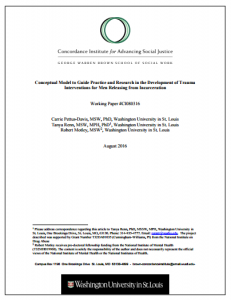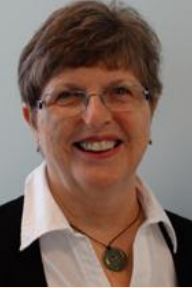Citation: Acquaye, Hannah, “The relationship among post-traumatic growth, religious commitment, and optimism in adult Liberian former refugees and internally displaced persons traumatized by war-related events” (2016). Electronic Theses and Dissertations. Paper 5071.
THE RELATIONSHIP AMONG POSTTRAUMATIC GROWTH, RELIGIOUS COMMITMENT, AND OPTIMISM IN ADULT LIBERIAN FORMER REFUGEES AND INTERNALLY DISPLACED PERSONS TRAUMATIZED BY WAR-RELATED EVENTS
by HANNAH EMMA ACQUAYE M.Ed. University of Cape Coast, Ghana, 2008 P.G.D.E. University of Cape Coast, Ghana, 2006 B.A. University of Cape Coast, Ghana, 2001
In West Africa, Gregory and Prana (2013) undertook a study with Ivorian refugees in Liberia. The researchers wanted to determine if posttraumatic growth would increase measurably among Ivorian refugees if they learned the 10 modules taught in the Companion Recovery (CR) model. The CR model is accomplished through a collection of counseling theories including Gestalt, Cognitive Behavioral and Traumatic-Incident Reduction. They had earlier discovered that this model was critical in an environment whose membership fluctuated, who had limited funding, and whose staff members were stretched beyond their abilities. According to them, the CR model was proven to reduce PTSD symptoms in a sample of child soldiers. For their study, fifty Ivorian refugees experiencing profound catastrophic trauma (the loss of the three fundamental levels at the base of Maslow’s hierarchy of needs; Maslow, 1970) were given the CR training.
The Companion Recovery (CR) model comprises 10 modules placed in three sequential categories. The first is trauma impact reduction and education (overwhelming event, encapsulation, recognition). The second is resilience (release and resilience), and the third is posttraumatic growth (new self, rebuilding community, and commencement). The CR models include group training where participants learn to recognize the impact of trauma on the mind and body. Participants are then taught to select a companion who will maintain confidential and effective communication skills. Understanding and embracing of the concepts of the 10 modules help participants to become expert companions necessary for posttraumatic growth. Results from this intervention indicated that participants discovered a new self when they identified the power of surviving the profound catastrophic traumatic they had experienced due to the flight from conflict. Results further indicated participants’ pride in rebuilding their social structure and it helped them reach out to help their communities in a positive and meaningful way; a connection to the new possibilities dimension of posttraumatic growth.

 The TIR Value-Centered News September 2016 issue (No. 1) is now available.
The TIR Value-Centered News September 2016 issue (No. 1) is now available. Traumatic Incident Reduction (TIR) study by Pamela V. Valentine, PhD was cited in “
Traumatic Incident Reduction (TIR) study by Pamela V. Valentine, PhD was cited in “